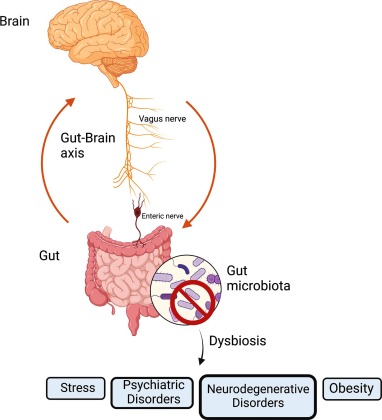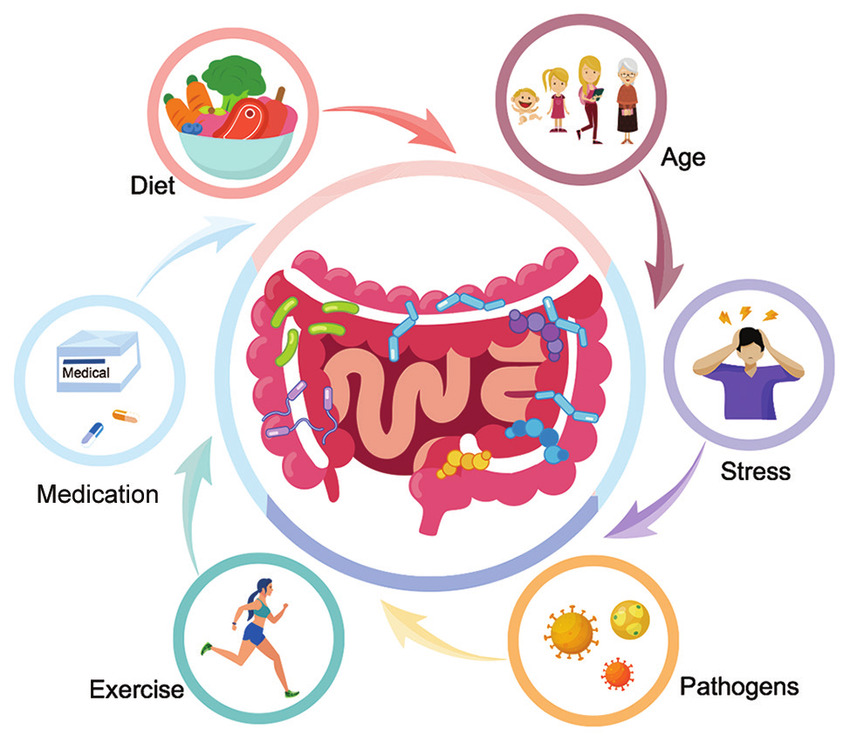Wellness Experts Series – Gut Health and the Gut-Brain Connection
By Leila Abachi
Leila is a dedicated Naturopathic Practitioner with over two decades of hands-on experience in homeopathy, functional nutritional therapy, and Bach Flower remedies. Her approach is rooted in genuine care and a deep belief in personalised healing, blending nutritional guidance, homeopathic treatments, functional testing, and emotional support techniques. Leila empowers clients with knowledge and life skills to achieve health goals, fostering lasting balance, vitality, and emotional resilience.
Inspired early on by her family’s traditional use of herbal remedies, she earned a Bachelor of Health Science in Homeopathy from the University of Westminster in London in 2004. Since then, she continued expanding her expertise with Functional Medicine–based Nutritional Therapy and advanced Bach Flower training. Leila offers one-on-one consultations, both in person and online, supporting clients with thoughtful, holistic care tailored to their unique journey.
This month, we sat down with Leila and asked her questions about gut health, how it is connected to the brain and by extension to our lifestyles and overall wellbeing.

Leila Abachi, Naturopathic Practitioner
GOCO: In simple terms, could you explain the gut-brain connection and why it is so important for our overall health and mental wellbeing?
Leila: The gut-brain connection is a two-way communication system between your digestive system and your brain. Have you ever felt your stomach tighten when you’re anxious or experienced “butterflies” when you’re excited? These sensations are clear examples of how closely the gut and brain influence each other. This complex yet delicate exchange of information occurs through the central nervous system, primarily involving the vagus nerve, hormones, neurotransmitters, and the gut microbiome.
This connection plays a crucial role in mood and mental health. While over 90% of the body’s serotonin—a key neurotransmitter involved in mood regulation—is produced in the gut, it doesn’t directly affect the brain. However, with the help of beneficial gut microbes, serotonin influences digestion, nutrient absorption, and gut motility, while also sending signals to the brain through the vagus nerve.
The gut-brain axis also influences the immune system. Serotonin can impact immune cell activity, while the gut microbiome helps train the immune system to respond appropriately to pathogens, reducing the risk of overreactions that could lead to autoimmune conditions. Chronic stress can disrupt this balance, increasing gut permeability (often referred to as “leaky gut”) and triggering inflammation. Over time, this can contribute to long-term health issues.

Gut-Brain Axis Graphical Abstract. Image credit: Science Direct (Gut-brain axis and Alzheimer’s disease: Therapeutic interventions and strategies)
GOCO: What are the most common modern lifestyle habits that negatively impact gut health, and what small changes can people make to start improving it?
Leila: Modern lifestyle habits can significantly impact gut health, often in ways people don’t realise. One of the most common culprits is a poor diet. Relying heavily on processed and packaged foods—typically high in sugar, preservatives, and low in nutrients—can disrupt the gut microbiome. A simple way to support gut health is to choose fresh, whole foods high in fiber whenever possible. As a rule of thumb, gut-friendly, body-loving foods usually don’t come with labels.
Excessive consumption of alcohol and caffeine is another factor that can irritate the gut lining and upset the microbial balance. Moderation is key, as reducing intake of these substances can help preserve gut integrity. The overuse of medications, particularly antibiotics and non-steroidal anti-inflammatory drugs (NSAIDs), can also harm the gut microbiome and damage the stomach lining, leading to inflammation. When medications are necessary, it’s important to support gut recovery afterward—through nourishing foods, probiotics, or fermented foods.
Chronic stress plays a major role as well. It can disrupt gastrointestinal (GI) function and alter the activity and structure of the gut microbiota, often resulting in an imbalance known as gut dysbiosis. This can lead to digestive discomfort, increased inflammation, and a weakened immune system. Practicing slow, deep breathing into the abdominal area, walking in nature, and engaging in calming activities can help activate the parasympathetic nervous system and regulate stress responses.
Poor sleep habits also negatively impact gut health. Irregular sleep patterns or sleep deprivation can throw off the gut’s natural rhythm and increase internal stress and inflammation. Establishing a consistent bedtime routine, getting natural sunlight exposure during the day, and including daily movement can all help regulate melatonin production and improve sleep quality.
Regular physical activity is another important factor in maintaining a healthy gut. Exercise helps promote a diverse and resilient microbiome, encouraging the growth of beneficial bacteria. Research shows that active individuals tend to have greater microbial diversity, which is linked to reduced inflammation and better mental health. Movement supports the gut-brain connection, allowing for more balanced communication between the two systems.

Credits: Creative Commons Attribution 4.0 International
GOCO: How can stress and emotional health affect our digestion, and what practices would you recommend for creating better balance?
Leila: When we are stressed or emotionally challenged, the body shifts into survival mode, commonly known as the fight-or-flight response. In this state, non-essential functions like digestion slow down or shut off temporarily. This can lead to symptoms such as bloating, cramps, diarrhea, and abdominal pain. Chronic stress also disrupts the balance of the gut microbiome, which can affect hormone production, gut-brain communication, mood, nutrient absorption, and immune function. Over time, if inflammation continues unchecked, you may develop increased sensitivities and digestive issues such as IBS, acid reflux, or other GI conditions.
Because the gut-brain connection is a two-way system, stress affects the gut, and an imbalanced gut can in turn negatively impact mood and emotional well-being. During periods of chronic stress, the most important (and often the hardest) thing is to maintain healthy habits as consistently as possible. A key goal is to activate the parasympathetic nervous system, also known as the “rest and digest” state. One simple but powerful tool is box breathing: inhale for 4 seconds, hold for 4, exhale for 4, and hold again for 4. Repeat this cycle five times to calm the nervous system.
Gentle movement practices like yoga, Qi Gong, or Tai Chi combine physical activity with mindfulness, which helps regulate both stress and digestion. Journaling is another valuable practice, whether you’re expressing emotions, noting things you’re grateful for, or simply organising your day with a to-do list, it helps reduce mental clutter and foster emotional clarity.
Eating mindfully and slowly becomes especially important during times of stress. Focus on high fiber nutrient-dense foods rich in magnesium, essential fats, B vitamins, and vitamin C to support your nervous system and adrenal health. It’s common to crave comfort foods when you’re feeling overwhelmed, but try healthier swaps like replacing chocolate with dates or salty chips with steamed edamame or lightly salted nuts.
Lastly, don’t underestimate the power of sleep. This is the time when your body repairs, resets, and restores itself. Aim to go to bed around the same time each night, ideally by 10:30 p.m. Avoid stimulants like caffeine in the late afternoon or evening, as it can take up to six hours for half the caffeine to leave your system. Minimise alcohol before bed, as it may help you fall asleep but disrupts the deep, restorative stages of sleep. Instead, try calming herbal teas like chamomile, lemon balm, or ashwagandha to wind down naturally.

A key goal is to activate the parasympathetic nervous system, also known as the “rest and digest” state. One simple but powerful tool is box breathing: inhale for 4 seconds, hold for 4, exhale for 4, and hold again for 4.
GOCO: Are there any emerging trends or recent research in gut health that you believe people should be paying attention to right now?
Leila: The importance of gut health, and its profound influence on mood, mental clarity, physical strength, and immunity is increasingly coming into focus. Rather than viewing the gut as an isolated system, research now highlights the need for a holistic, ecosystem-based approach to supporting long-term health.
One of the most critical factors in gut health is diet. Consuming foods rich in prebiotics, probiotics, and more recently, postbiotics – the beneficial compounds produced when probiotics and prebiotics are metabolised by gut microbes – helps nourish and maintain a diverse microbiome. Fermented foods such as kefir, sauerkraut, and kimchi are excellent natural sources, while high-quality probiotic supplements can offer additional support. Fiber also plays a central role. Including a variety of vegetables, legumes, and whole grains in your daily meals ensures adequate fiber intake, which feeds beneficial bacteria and promotes regular digestive function.
Lifestyle habits such as regular physical movement are equally important, as exercise has been shown to increase microbial diversity. Quality sleep gives the gut time to repair and rebalance, while effective stress management is essential due to the close relationship between the gut and brain; often referred to as the gut-brain axis. Chronic stress can disturb this connection, negatively impacting both digestion and mental well-being.
It’s important to recognise that there is no one-size-fits-all solution when it comes to gut health. Each individual’s microbiome is shaped by a combination of genetics, environmental exposure, and personal lifestyle factors. As a result, the focus has shifted away from targeting one area of the gut toward supporting the broader pillars of a balanced and resilient gut ecosystem.
To personalise a gut health strategy effectively, it’s important to understand the current state of an individual’s digestive health. Functional testing can provide insights into digestion, nutrient absorption, and the overall microbial profile. These findings make it possible to tailor dietary and supplement interventions to specific imbalances or deficiencies.
Technological advancements are also improving how gut-supporting ingredients are formulated and delivered, ensuring that active compounds remain stable and effective until they reach their destination in the digestive tract. Furthermore, investigating issues such as heavy metal accumulation, which may interfere with healing, and addressing them as part of a gut restoration plan can be beneficial. Even genetic predispositions, such as challenges with methylation or nutrient absorption, can offer important clues that help identify underlying dysfunctions and guide more precise, individualized interventions.
GOCO: What are three practical daily habits or food choices that our readers could adopt today to support a healthier gut?
Leila:
- Nutrition
Support your gut health by gradually introducing more fiber-rich and fermented foods into your diet. If you have a sensitive gut, start with gently cooked vegetables and just a small amount of fermented food, increasing gradually over time. This approach helps nourish your gut microbiome, improve digestion, remove toxins, and encourage the growth of beneficial bacteria.
Visualise a rainbow of colors on your plate: think mixed vegetables, fruits, beans and legumes, nuts, and seeds. Try a bean salad with chopped seasonal veggies, topped with seeds, and enjoy it alongside a shot of kombucha.
- Hydration
Water is essential for breaking down food, absorbing nutrients, and moving waste through your digestive system. Sip water throughout the day to stay hydrated. If drinking plain water feels like a challenge, start by adding a large glass of room-temperature water first thing in the morning.
To make it more enjoyable and add potential health benefits, try infusing your water with a slice of lime, a dash of apple cider vinegar, or a cinnamon stick.
- Daily Pause (5 Minutes)
Chronic stress can disrupt digestion and gut health. Taking even a short pause each day helps activate your “rest-and-digest” mode.
Here are a few easy ways to unwind:
- Practice 5 minutes of deep belly breathing
- Go for a quick walk or do a gentle stretch
- Listen to a short mindfulness or guided relaxation session before bed
Tip: Set a daily reminder to take this moment for yourself; it’s a small act with a big impact.
References
- https://pubmed.ncbi.nlm.nih.gov/31436595/
- https://pmc.ncbi.nlm.nih.gov/articles/PMC9873947/
- https://pubmed.ncbi.nlm.nih.gov/36870101/
- https://pmc.ncbi.nlm.nih.gov/articles/PMC5357536/
- https://pubmed.ncbi.nlm.nih.gov/34364787/
- https://pmc.ncbi.nlm.nih.gov/articles/PMC6469458/
- https://pmc.ncbi.nlm.nih.gov/articles/PMC3272651/
- https://pmc.ncbi.nlm.nih.gov/articles/PMC10507538/
- https://www.explorationpub.com/uploads/Article/A100197/100197.pdf
- https://pubmed.ncbi.nlm.nih.gov/39322314/

